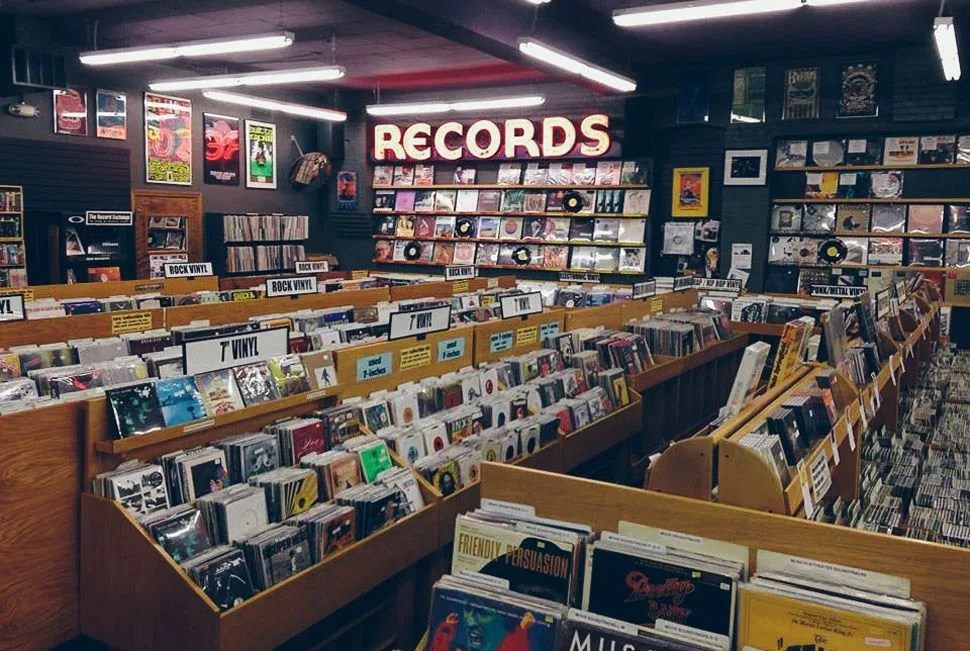By now you’ve heard the story. Brick-and-mortar record stores were a hardy but dwindling fleet, battered by the rising tides of cassette tapes one decade, compact discs the next, and finally the crushing waves of online piracy and the free and paid streaming services that followed. Until one day, when an enterprising group of record store enthusiasts took a cue from the beloved tradition of Free Comic Book Day and dreamed up Record Store Day, a holiday for the appreciation of physically packaged music and the communal spaces that house it. Thus was vinyl reborn to generations of music geeks new and old.
Carrie Colliton, one of the founders of Record Store Day, has heard the story plenty of times. And she says it’s a little off base.
“Independent stores were doing great [in 2007], but the only media story you ever saw, and really the pop culture perception, was that record stores were gone, and isn’t that sad.” A quick glance at nearly decade-old headlines confirms this. “Tower Crumbles in the Download Era”, read The Guardian; “For Tower Records, the End of Disc”, proclaimed The Washington Post; and The Villager, a Greenwich Village-based magazine, quipped that “Video Killed the Radio Star; iPod Killed Tower Records”.
“All of it is going”, Paul Farhi wrote in the post. “Not just Tower, but the record store culture that Tower embodied. Anything that can be squeezed down to ones and zeros and moved around at the speed of electrons doesn’t have to be stacked in plastic cases, shoved into bins and splayed over aisles under fluorescent lights anymore. All of it’s going online.”
Isn’t it sad? Colliton doesn’t think so.
It’s not so much that Record Store Day saved record stores. It gave a wide community of enthusiasts something to organize around.
“Tower Records didn’t really close because nobody wanted to shop there; there were internal issues. And that’s the case with every store that closes. Obviously digital media and streaming and the ease of all that doesn’t help”, she notes. And sure enough, the inflated CD prices of the time didn’t help either. But smaller players, according to Colliton, had years ago found their niche among their respective neighborhood communities of diehard music lovers — a group that hasn’t been shrunk down by the digital age, but rather given the power to grow. When Tower Records closed, these local stores had been around for roughly 20 years, on average, according to Colliton — though in the past five years the average age has gone down, as that storied “vinyl resurgence” has led to several new shops opening up.

